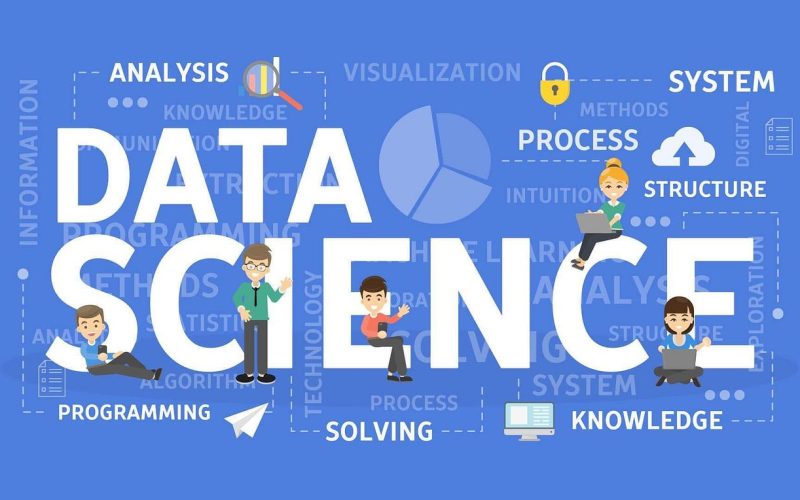Introduction
Data science is one of the most exciting and rewarding fields in today’s tech-driven world. With its vast potential for innovation and impact, data science is transforming industries across the globe. From healthcare to finance, marketing to sports, data scientists are at the forefront of solving complex problems and making data-driven decisions.
Rise of Demand for Data Science Skills
In the past decade, businesses across every field—from retail and healthcare to finance and tech—have unlocked huge value by using data. This shift created a strong need for people who can turn raw numbers into clear insights. Universities and online platforms responded by offering data science programs and bootcamps. As more success stories emerged—like predicting customer needs or catching fraud—data science skills moved from a niche specialty to a must‑have for anyone working with information.
Benefits of Mastering These 10 Data Science Skills
Learning core data science skills gives you the power to solve real problems and drive decisions. You can spot hidden patterns in customer behavior, build tools that automate repetitive tasks, or forecast trends that shape strategy. Strong skills also boost your career prospects: data roles rank among the fastest‑growing and best‑paid jobs. Beyond income, the ability to work with data opens doors to work on meaningful projects, from improving patient care to optimizing renewable energy use.
Role of Key Skills in Data Science Success
Each skill—from programming and statistics to data visualization and machine learning—plays a specific role in the data workflow. Programming languages like Python or R let you clean and reshape data quickly. Statistical know‑how ensures you draw sound conclusions rather than jumping to the wrong answer. Visualization tools bring your findings to life, helping non‑technical teammates understand results. Machine‑learning techniques then turn those insights into predictive models that can run automatically, creating real business impact.
Top 10 Skills to Succeed in Data Science
1. Programming (Python & R)
To work with data effectively, you must have strong programming skills. Python is the most widely used language in data science due to its simplicity and extensive ecosystem (e.g., Pandas, NumPy, Scikit-learn). R is also valuable, especially for statistical analysis and data visualization.
Tip: Start with Python, as it covers a broad range of data science applications.
2. Statistics and Probability
A solid understanding of statistical concepts is critical for interpreting data correctly. Key areas include distributions, hypothesis testing, p-values, and confidence intervals.
Why it matters: Without strong statistical grounding, your models may mislead rather than inform.
3. Data Wrangling and Cleaning
Raw data is rarely analysis-ready. Data wrangling — also known as data munging — involves cleaning, restructuring, and enriching data to prepare it for analysis.
Key tasks: Handle missing values, eliminate duplicates, and format data properly.
4. Data Visualization
Effectively communicating your findings is essential. You must be able to present data in a clear, insightful, and compelling way. Tools like Matplotlib, Seaborn, Plotly, and Tableau are valuable for creating impactful visualizations.
Pro tip: A well-crafted visual can tell a story far better than raw numbers.
5. Machine Learning
Machine learning allows systems to learn from data and make predictions or decisions. It’s important to understand both supervised learning (e.g., regression, classification) and unsupervised learning (e.g., clustering, dimensionality reduction).
Getting started: Use Scikit-learn for hands-on practice with common algorithms.
6. SQL and Databases
Most data is stored in relational databases, so knowing how to use SQL (Structured Query Language) is essential. It enables you to retrieve, filter, and manipulate data efficiently.
Time-saver: Strong SQL skills can significantly speed up your data preparation process.
7. Big Data Tools
When datasets become too large for local machines, tools like Hadoop, Spark, and Kafka come into play. They allow for efficient data processing and analysis at scale.
Good to know: While not always required, these tools are a big plus for enterprise-level roles.
8. Cloud Computing
As more organizations migrate to cloud infrastructure, familiarity with platforms like AWS, Google Cloud Platform, and Microsoft Azure is becoming a necessity.
Practical skills: Learn to deploy models, manage data, and run pipelines in the cloud.
9. Communication and Storytelling
Data is only as powerful as your ability to explain its meaning. Great data scientists can communicate insights to both technical and non-technical audiences.
Pro tip: Practice simplifying your findings and presenting them in a compelling, story-driven format.
10. Business Acumen
Understanding the business context behind the data helps you identify relevant problems and develop impactful solutions. Data scientists who grasp their industry’s priorities can deliver far more value.
Action step: Study your industry — learn what matters, what metrics drive decisions, and what challenges need solving.
Conclusion
Data science is a powerful field that combines math, coding, and creativity. To succeed, you don’t need to be perfect at everything, but mastering these 10 skills will give you a strong foundation: Programming (Python or R), Statistics and Probability, Data Cleaning and Wrangling, Data Visualization, Machine Learning Basics, SQL and Databases, Big Data Tools, Cloud Computing, Communication and Storytelling, Problem-Solving Mindset Start slow, build one skill at a time, and practice with real-world data. Over time, you’ll become more confident and ready to take on exciting projects.
Remember: Learning data science is a journey. With the right mindset and these key skills, you’ll be well on your way to a successful career in 2025 and beyond!
Final Thoughts
Data science isn’t just about crunching numbers, it’s about solving real-world problems with data. By building expertise in these 10 areas, you’ll be equipped to grow and thrive in one of the most dynamic and rewarding careers today.












